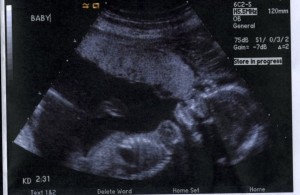I’ve been reading through Jeremiah for over a month. One painful chapter a day. During an already challenging time in my life, it’s not an easy book to read. Here is a man, in the center of God’s perfect will for him, who continually is imprisoned, beaten, ridiculed, plotted against, starved, and harassed for the words God has given him to say.
While being immersed in Jeremiah, I received a ministry newsletter with the following caption:
I was troubled at first by this tagline, even though I know this to be a balanced ministry. In a “You Can Have An Awesome (and Pain-free) Life Today!” type of Christianity that we often see and practice in America, we don’t like suffering. We much prefer to listen to those voices promising blessing, prosperity, peace and abundance.
The Gospel does actually promise those things. They may not look like we expect, but they are available. But they are not easily won.
They come through obedience.
Jeremiah was obedient, and what it brought him was suffering.
Joni Eareckson Tada, no stranger to suffering, states, “I want to see God move powerfully. But often the way He moves the most powerfully is in suffering. We wouldn’t even have access to Jesus’s power if it weren’t for the suffering of the cross.”
The Gospel promises suffering. You can read what I’ve written about it in that link. The Bible says that just as Jesus suffered, so must we suffer, and in that suffering, share in His glory (1 Peter 4:12-13, Romans 8:16-18).
Oh, Lord, I desperately want to share in Your glory.
So if you are suffering in a manner that pleases God, keep on doing what is right, and trust your lives to the God who created you, for he will never fail you. 1 Peter 4:19 (NLT), emphasis mine
Throughout the suffering of Jeremiah, God sends rescuers to make the journey a bit easier for him. When Jeremiah was placed in a cistern and sunk deep into the mud, Ebed-Melech (an Ethiopian) went to King Zedekiah to advocate on Jeremiah’s behalf, insisting (in opposition to the other officials who had put him in the cistern to die) that Jeremiah would starve if left there. The king relented and told Ebed-Melech to take 30 men to pull Jeremiah out. It took 30 men to get him out.
But before they went to the cistern, Ebed-Melech first took the men to find old rags and discarded clothing, which he lowered down to Jeremiah before pulling him out. Why? So Jeremiah’s armpits would not get rope burn when he was pulled out!
I’m amazed at the way we can see God’s care and provision during trials if we, with willing hearts, open our eyes to see it.
How do we find God’s best for us?
If you are celebrating Lent during this season, you may be intimately aware of the fact that for Jesus, God’s best was the cross.
How do we find God’s best for us? Through steps of obedience. By doing what we know to do today, and clinging to Him no matter where it leads us.
Because sometimes, often times, God’s best for us is suffering.


